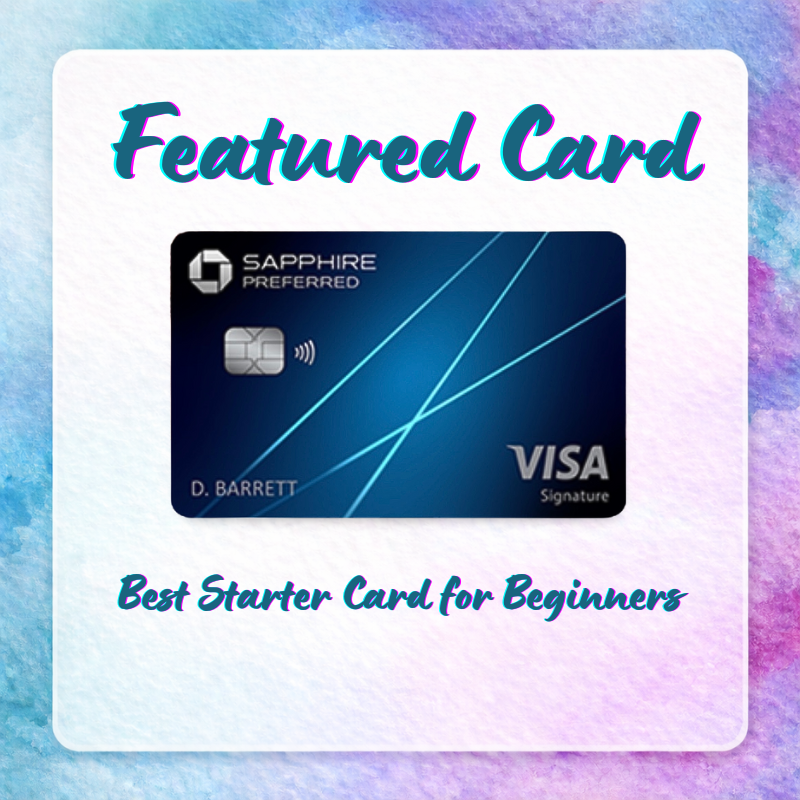What is a Bank Bonus and How Can it Fund Your Next Trip?
Even when you use points and miles to cover flights or hotels, travel still requires some cash for taxes, fees, meals, local transportation, tours, and extras. That’s why building a dedicated Travel Fund is so important: it helps cover the costs that points alone can’t.
Luckily, there are smart ways to make your money work for you and expedite the growth of your Travel Fund. With strategies like bank account bonuses, high-yield savings accounts, and travel rewards, you can fund your next adventure faster while keeping your everyday budget intact.
If you’re dreaming of your next family getaway but want to avoid dipping into your everyday savings, bank bonuses can be a game-changer.
Even when you use points and miles to cover flights or hotels, there are always expenses like taxes, fees, meals, local transportation, and tours. Luckily, there are smart ways to make your money work for you and expedite the growth of your Travel Fund. One of the easiest and safest ways to do this is through bank bonuses.
Bank bonuses aren’t about “free money” in the abstract. They’re about strategically moving your money to make it earn more than it would sitting in a standard account or even investing elsewhere.
What Exactly is a Bank Bonus?
A bank bonus is a cash incentive offered by banks to attract new customers. Typically, you receive the bonus after opening a checking or savings account and meeting specific requirements. Bonuses can range anywhere from $200 to $500 (or more!) depending on the bank and promotion.
How It Works:
Open a New Account: Choose a bank account offering a bonus. This could be a checking account, savings account, or both.
Meet the Requirements: Banks usually require a minimum deposit, direct deposit, or a certain number of debit card transactions.
Receive the Bonus: Once you complete the requirements within the specified time frame, the bank deposits the bonus into your account.
Bank Bonuses vs. Traditional Investing: Making Your Money Work Harder
Many people assume investing in the stock market is the fastest way to grow money. Historically, the stock market returns around 10% annually. And that’s great! But you can take a chunk of your money and let it work harder for you. If you strategically move money into bank bonuses, your effective return can be much higher, often 20–30% in just a few months.
Here’s an example:
Scenario:
Deposit $1,000 into a bank checking account with a $300 bonus.
Complete all requirements in 3 months.
Total earned = $300 on $1,000 in 3 months → 30% return in a quarter.
Compare to Stock Market:
$1,000 invested at 10% annually → ~$25 in 3 months.
Bank bonus approach: $300 in 3 months vs. $25 in the stock market.
You’re temporarily moving money to take advantage of promotions. Once the bonus is earned, you can transfer it into a high-yield savings account to continue growing. Repeating this with multiple accounts across the year compounds your Travel Fund growth rapidly, safely and predictably.
💡 Key point: This isn’t gambling. It’s about strategic movement of your own money to earn high, guaranteed returns through bank promotions.
Tips for Maximizing Bank Bonuses
Read the Fine Print Carefully
Always check account requirements: minimum deposits, direct deposit thresholds, and number of transactions.
Look for hidden fees like monthly maintenance fees or overdraft charges that could offset your bonus.
Make sure you understand the timeline. Some bonuses require you to complete steps within 30–90 days.
Space Out Account Openings and Check Your ChexSystems Report
Opening multiple accounts too quickly can trigger multiple credit inquiries, which may temporarily affect your credit score.
Many banks also check ChexSystems, a reporting system that tracks account openings, closures, and overdrafts. If you’ve had recent account issues, some banks may deny you a new account or bonus.
Plan your applications strategically over several months to maximize bonuses while protecting your credit and keeping your ChexSystems report in good standing.
Keep a calendar or spreadsheet to track which accounts you’ve opened and when each bonus is due.
Meet All Requirements Exactly
Follow the bank’s instructions to the letter. Missing a single requirement (like a direct deposit or minimum transaction) could disqualify you from the bonus.
Set up reminders on your phone or calendar to make sure all requirements are completed on time.
Keep the Account Open for at Least 6 Months
Many banks require the account to remain open for at least six months to avoid clawbacks or fees.
Closing an account too early can cancel the bonus or create a negative mark on your credit report.
Combine Bonuses With High-Yield Savings Accounts
After you receive your bonus, consider moving the funds into a high-yield savings account to continue earning interest.
This is a simple way to compound your Travel Fund and make your money work even harder.
Use Bonuses Strategically Throughout the Year
Track when new promotions are available. Some banks rotate seasonal bonuses or special offers.
Plan your applications to align with your travel goals, so the bonus hits your Travel Fund when you need it.
Leverage Referral Bonuses When Possible
Some banks offer bonuses for referring friends or family. If your readers or friends sign up using your referral link, you could earn an extra bonus.
This works especially well if you have a newsletter or social media following.
Avoid Fees That Can Eat Into Your Bonus
Don’t withdraw or close the account too early. Many bonuses require the account to stay open for a set period.
Avoid overdrafts, unnecessary ATM fees, or falling below minimum balances.
Some banks have minimum balance requirements in order to waive fees. Check if there are any accounts fees and figure out how you can avoid them if possible.
Keep Records and Track Everything
Create a spreadsheet or digital log with:
Account name
Open date
Requirements (deposit, direct deposit, transactions)
Bonus amount
Expected payout date
Date that you close the account
This helps prevent mistakes and ensures you claim every bonus you’re eligible for. It also helps you keep track of when you can churn bonuses again.
Think of Bank Bonuses as Part of a Larger Strategy
Combine with travel credit card rewards, high-yield savings, and cashback apps.
Strategically moving money between accounts can multiply your total earnings and fund your next trip faster than traditional savings alone.
Conclusion: Make Your Money Work Harder for Travel
Bank bonuses are a strategic way to make your money work harder and grow your Travel Fund faster than traditional savings or even typical stock market returns. By carefully moving money, meeting account requirements, and keeping your accounts open, you can earn high, predictable returns in just a few months.
This approach can make a meaningful difference in your travel costs: covering meals, transportation, tours, or extra activities that points and miles don’t.




